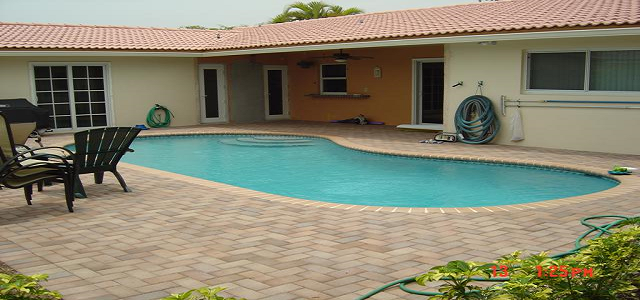Living in sunny South Florida means year-round pool enjoyment. But if your pool surface is cracked, stained, or rough to the touch, it might be time to consider resurfacing. As trusted pool resurfacing specialists in South Florida, Cliff’s Pools helps homeowners restore beauty, safety, and longevity to their swimming pools.
In this guide, we’ll cover the top signs your pool needs resurfacing, why resurfacing matters, and what options are best for Florida’s climate.
What Is Pool Resurfacing?
Pool resurfacing is the process of removing and replacing the finish of your pool. Over time, the surface breaks down due to sun exposure, chemicals, and wear-and-tear. Resurfacing renews both appearance and function—improving water clarity, swimmer comfort, and long-term durability.
Top Signs You Need to Resurface Your Pool
- Rough or Sandpaper-Like Surface
If your pool feels rough underfoot or irritates skin, the finish has likely deteriorated. This is common in older marcite pools that have reached the end of their lifespan.
- Visible Cracks or Chips
Surface cracks, flakes, or spalling are signs the plaster or finish is breaking down. These issues can worsen quickly and even lead to structural problems.
- Persistent Stains and Discoloration
Black algae, mineral stains, and discoloration that don’t come off with cleaning may be embedded in the surface. Resurfacing removes these deep stains completely.
- Water Level Dropping (Leaks)
Cracks in the surface can lead to leaks, which may be hard to spot initially. If your pool consistently loses water, a resurface and leak inspection may be required.
- Outdated Appearance
Sometimes, it’s not damage—it’s style. Outdated tile, plaster, or color tones can make your whole backyard feel old. Resurfacing allows you to modernize the look with pebble, quartz, or Diamond Brite finishes.
Best Pool Resurfacing Options for South Florida
At Cliff’s Pools, we recommend the following finishes:
- Diamond Brite: A quartz aggregate finish that resists stains and lasts up to 15 years
- PebbleTec: Natural stone pebbles with a high-end look and superior durability
- Quartz Finishes: Vibrant color, smoother texture, and improved algae resistance
- Marcite: Traditional plaster; lower cost but shorter lifespan
How Often Should a Pool Be Resurfaced in Florida?
Most pools in South Florida require resurfacing every 10–15 years, depending on:
- Surface type
- Chemical balance maintenance
- Exposure to sun and salt/chlorine
Why Choose Cliff’s Pools for Pool Resurfacing in South Florida?
- 35+ years of industry experience
- Licensed and insured in Florida (CPC1460184)
- Top-quality materials with warranty
- On-time project completion and cleanup
- Serving Fort Lauderdale, Coral Springs, Boca Raton, and beyond
Frequently Asked Questions
Q: How much does pool resurfacing cost in South Florida?
A: Most resurfacing projects range from $4,000 to $10,000, depending on pool size, chosen surface, and prep work needed.
Q: How long does resurfacing take?
A: Typically 5–10 business days, including draining, surface prep, application, and refilling.
Q: Can you resurface a pool in the rainy season?
A: Yes, but we closely monitor weather and may pause work during heavy storms to protect the finish.
Get a Free Pool Resurfacing Quote Today
Is your pool ready for a refresh? Cliff’s Pools provides expert pool resurfacing in South Florida, including Fort Lauderdale, Coral Springs, Parkland, and nearby areas.
Call us today or visit our Oakland Park showroom to schedule your free consultation.
Call us at (954) 466-5858 | Serving South Florida Since 1986.




